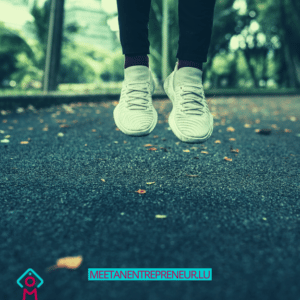A guide to protecting your trademark
Now that you know why you can’t protect your idea and that you have heard about different types of creations that can be protected, we can take a closer look at the steps to follow to protect your “creation”, whether it be via a trademark, a patent (for inventions), a design or even via copyright…
How can I protect my trademark?
You need to register it at an intellectual property office, for example at the Benelux Office for Intellectual Property (BOIP) or at the European Union Intellectual Property Office (EUIPO). Before getting advice from these offices, we recommend that you follow these three steps:
- First, head over to Luxembourg’s Institute for Intellectual Property (IPIL) website (link in French) to learn more on this subject and to gather information. Their experts provide free information. Regular training sessions are also organised.
- Then make sure that the trade mark you would like to use isn’t already protected by checking out the trademark register (link in French, for the Benelux register) for your line of business.
- You can also seek counsel from:
- Industrial property attorneys who can be found on the website of the Fédération des Conseils En Propriété Industrielle au Luxembourg (FCPIL) (link in French) for those established in Luxembourg
- Lawyers who specialise in intellectual property matters. You can find a list of lawyers on the website of the Barreau de Luxembourg (link in French)
💡 Things to know: your trademark can be registered online at Benelux level or at European Union level.
Conditions that need to be met
The brand that you want to protect has to be available in regard to previous rights, specifically for trademarks that have previously been registered, in relation to the territory that you want to cover and the service or product you want to protect of course.
Where will I be protected?
The notion of territory is extremely important and needs to be defined early on because the area of protection depends on it.
There are local specificities. For example, it’s impossible to protect your trademark solely in Luxembourg: the protection covers the Benelux (Belgium, the Netherlands and Luxembourg). The same can be said for designs, the current system also concerns the Benelux. If you are looking at the bigger picture, you can go straight to covering the European Union. Trademarks and designs generally need to be registered at an intellectual property office (the BOIP, the EUIPO…), but in the EU, there is also a system of unregistered design.
In terms of patents (for inventions), you can choose the protection at national level (Luxembourg) or at a wider European scale. Patents can be applied for at a national office – in Luxembourg, this is Luxembourg’s Office de la propriété intellectuelle at the Ministry of the Economy (link in French) – or a regional office such as the European Patent Office.
For copyright, that doesn’t require being registered in Luxembourg, the protection depends mainly on the national law applicable to the specific situation.
What if I decide to develop my activity in a new country?
If you want to extend your territory, you should know that the rule of “first come, first served” tends to apply! This is why looking into intellectual property and thinking about your development strategy as soon as possible is crucial. To give you an idea, let’s imagine that the trademark you have registered for your activity is “Smurfi” and that you work in Luxembourg. Your activity is flourishing and five years after launching it, you decide to extend your market to France (thus going from Benelux to France). Disaster strikes! The brand “Smurfi” already exists in France and for the same line of business… In this case, you can’t use that trademark in France, and your competitor can’t use it in the Benelux…
When to protect my brand?
As soon as possible, but not too early either! You should know that if you want to avoid a third party disputing your trademark, its use must not be interrupted during five continuous years. The trademark doesn’t automatically lose its validity after five years, but third parties will be able to dispute it. If you want to protect your trademark before starting your business, try to think about which areas you could possibly expand to.
There is an important distinction you need to know about:
- A company’s name: the name registered with the Trade and Companies Register, or the trade name
- The domain name, for your website
- The brand for the products and services you provide
If you want to use the same name for all three, start by checking the availability at each level.
You can register a trademark as a natural or a legal person. In both cases, it applies to an individual trademark. Collective trademarks such as “Made in Luxembourg” are another kettle of fish.
Once your brand is registered, it will be valid for 10 years and indefinitely renewable. To that end, the fee varies based on the territory covered and certain specificities: for the Benelux Union, plan for a minimum of 244 €, and for the European Union, at least 850 €. The fee to renew the brand is pretty much the same as the submission fee.
How long does it take to register a trademark?
You will receive the exclusive right to use the sign once the registration procedure is complete. To give you a timeframe, the registration process for a trademark takes about three months in the Benelux and slightly longer for Europe.
How much does it cost?
The fees vary depending on the type of intellectual property right.
For example, trademark registration fees start at 244 € in the Benelux Union and at 850 € in the EU. The registration of your trademark is indefinitely renewable in the Benelux or in the EU.
The i-DEPOT fees – which don’t protect you as such but serve as proof (i.e. “Ideas can’t be protected” article) – vary depending on the duration: it costs between 37 € for five years and 53 € for 10 years. These timeframes can be renewed for a fee of 26 €. Friendly tip: registering online costs less than sending a physical envelope.
If you run into a problem…
Reach out to an industrial property attorney or a specialised lawyer if you have any queries about using an element that seems to be protected, or on the contrary, if you want to dispute the unauthorised use of a trademark that you had previously protected.
In any case, reach out to experts
There you have it, those are the basics that every entrepreneur should know about the subject. But as you can probably guess, intellectual property is a complex matter where exceptions are not uncommon. To delve deeper into these questions, nyuko’s team is happy to help you and will put you in contact with experts in Luxembourg’s entrepreneurial ecosystem.
You liked this content? Share it now!















